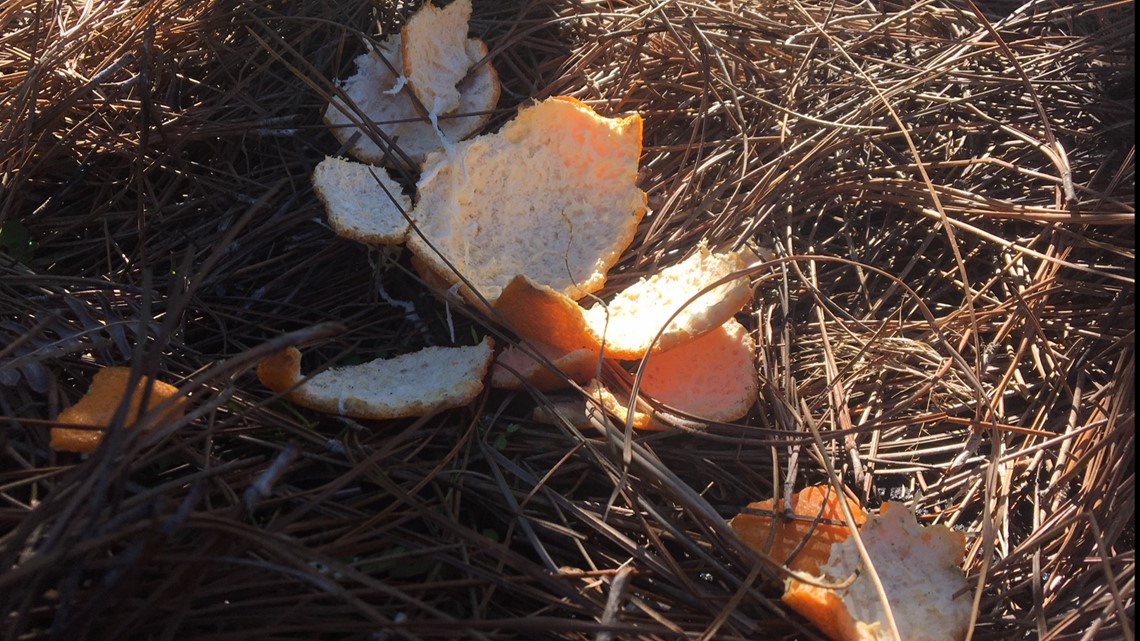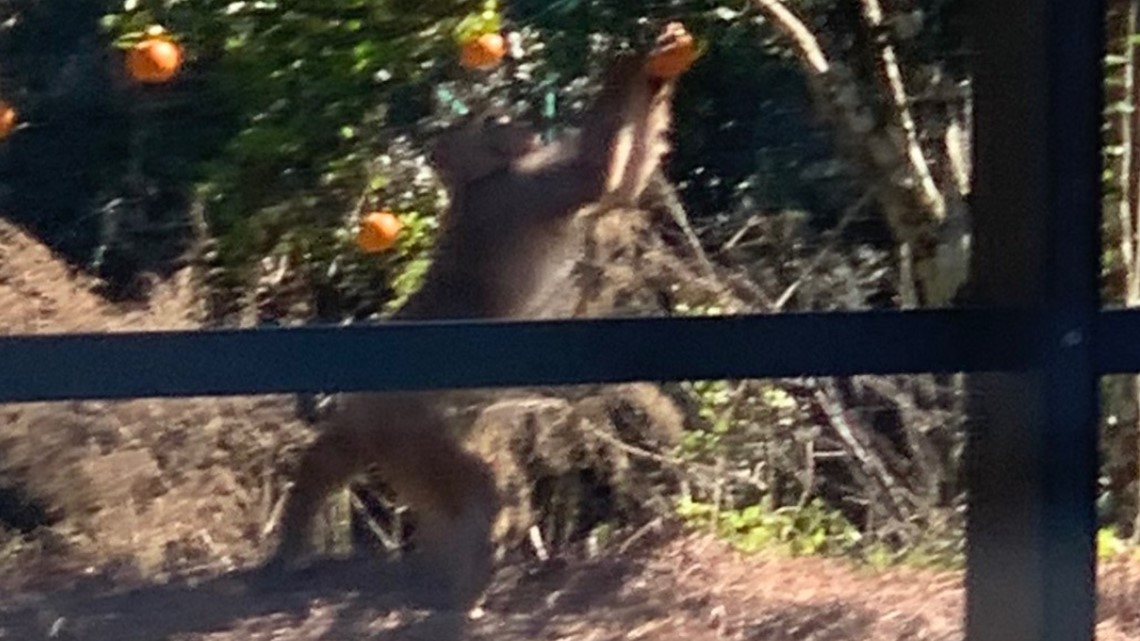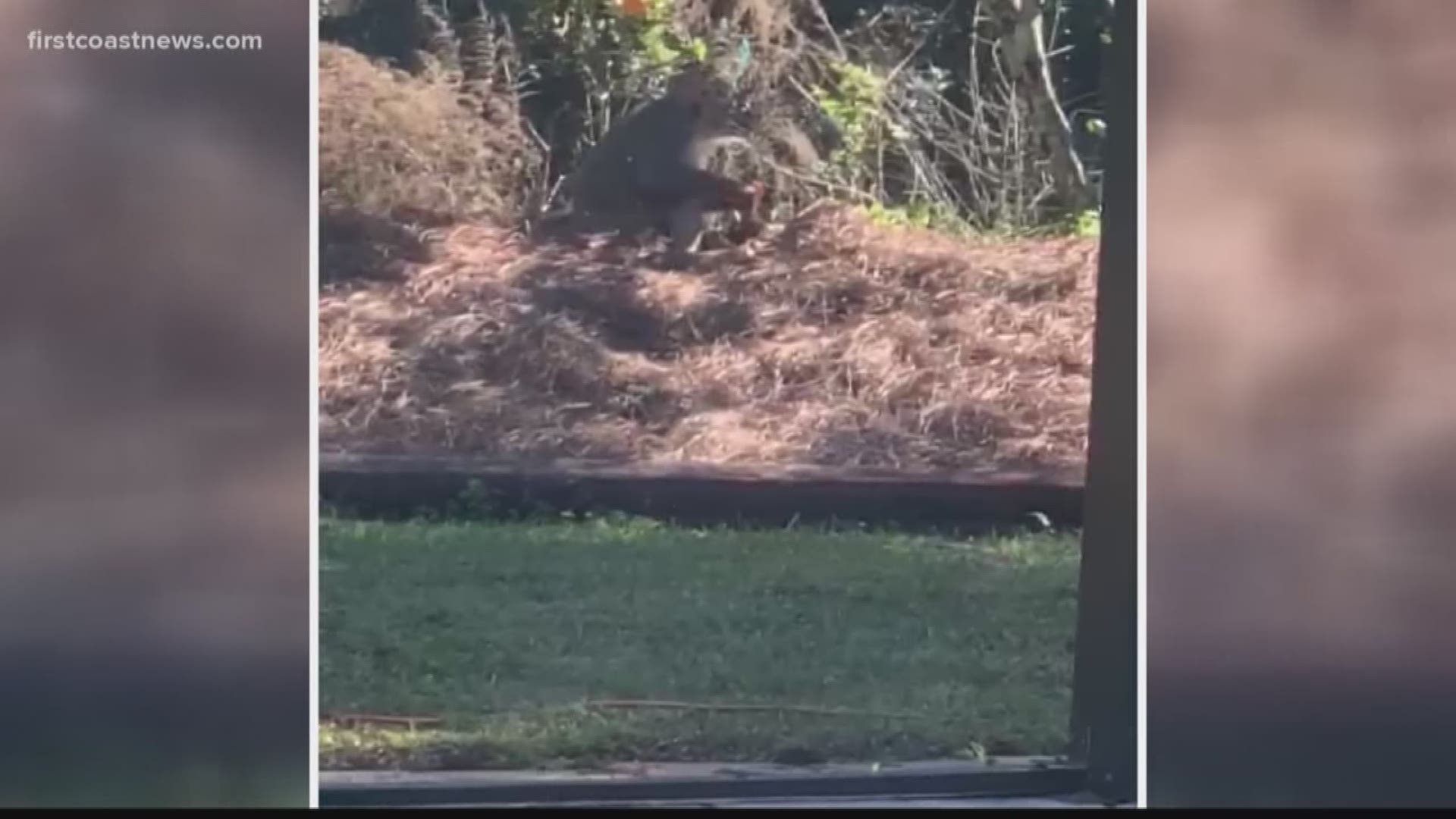JACKSONVILLE, Fla — Feral monkeys in suburbia.
As First Coast News first reported last week, an invasive monkey species known as the rhesus macaque has taken up residence on the First Coast.
Monkeys have long been a fixture of Central Florida’s state parks, but according to state wildlife officials and researchers at the University of Florida, their arrival in Northeast Florida is brand new.
Over the weekend, homeowners in suburban St. Johns County began posting fresh images of a backyard monkey. State regulators confirmed two sightings, on Sunday and Monday, in neighborhoods off of CR 210.
Colleen Sokol, who’s lived in St. Johns Golf and Country Club for nearly 16 years, has seen gators, bobcats, foxes and peacocks. But Sunday was her first monkey.
“I was on my phone and noticed something caught my eye running past,” Sokol said.
She described it as reddish-brown, low to the ground. Moments later she caught movement in the trees. “So I walked out on the lanai and went and looked, and that’s when I saw the monkey.”
She saw the monkey swinging from trees in the forest above her yard. “It was just hanging out,” she said. After a while, it moved closer to her pool, staring at her and her dogs without apparent alarm, and feasting on sweet oranges from her pineapple orange tree.
“I was a little in awe, but I was aware last week that there was something on the news in reference to them being seen in [Julington Creek], so I was not completely surprised,” said Sokol, who shot a one-minute video of the monkey. “Still, seeing one in the backyard was sort of strange.”
Sokol’s monkey is one of more than a dozen sightings reported to wildlife officials since last June -- reports so new the state hasn’t yet updated its “Wild Monkeys in Florida” brochure.


On Monday, all that’s left of Sunday’s visitor are remnants of orange peels -- and some lingering concern among some of Sokol’s neighbors. “Some say they’re concerned about walking their pets in the neighborhood now,” she said. “Some are saying they're a little fearful for small children.”
Not without reason. Rhesus macaques are known to carry Herpes B virus which can be fatal to humans if untreated. University of Florida wildlife ecologist Dr. Steve Johnson says they can become territorial and aggressive.
Sokol’s neighbors asked to have the monkey trapped and removed, but were told state officials don’t remove monkeys. Officials at FWC suggested the community hire a trapper if they become a nuisance. Feral monkeys are not protected except by state anti-animal cruelty laws.


As we reported previously, FWC issued a statement two years ago recognizing monkeys as a human and environmental hazard, saying it "supports active management to remove these threats.” But FWC has not defined “active management," and has made no efforts at population control efforts since 2012.
(FWC has so far declined interview requests.)
“I’m not under the impression there’s any management going on right now by the state,” Johnson said. “But as that population grows this kind of this kind of behavior is going to be a result of that population growth.”
He added, “We expect that population to grow fairly rapidly.”
Sokol says she’s not worried – at least not now. “Right now, I’m not concerned. But things could change in the future. If we get inundated with monkeys, it might become a concern.”
Monkey 101:
- Never approach or offer food to wild monkeys.
- Bring in any outside food that might attract monkeys.
- If you encounter a monkey, supervise children closely and keep pets leashed.
- If you are bitten or scratched, wash the wound and seek medical attention immediately.
- To report a monkey click here

